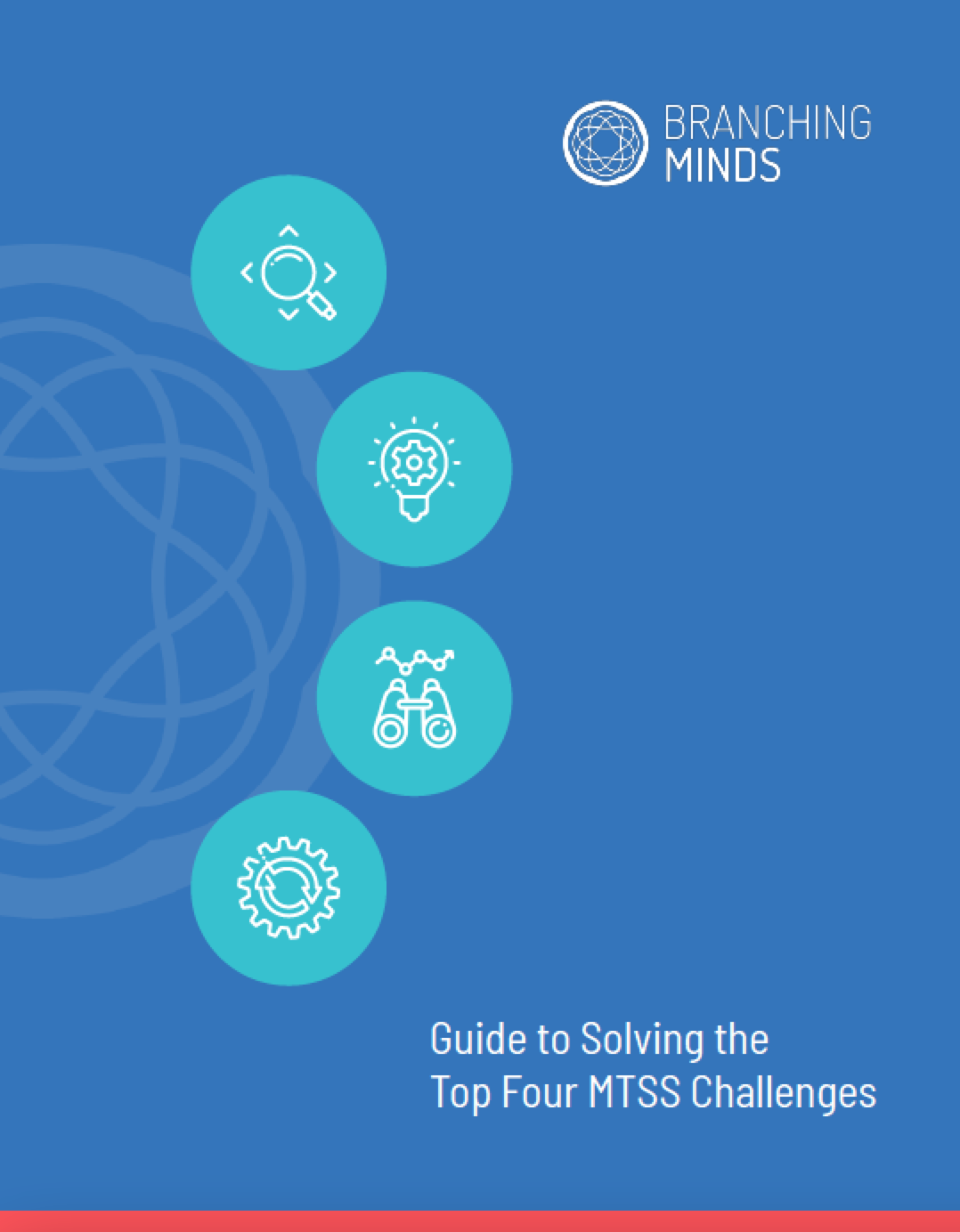Guide
Solving MTSS Challenges
MTSS (Multi-Tiered System of Supports) is a proactive, data-driven approach to meeting students’ academic, behavioral, and social-emotional needs.
At Branching Minds, we help schools make the shift to MTSS every day—ensuring every student gets the right support at the right time.
This guide covers the core elements of MTSS, including:- Differentiated instruction and universal screening
- Targeted intervention plans with progress monitoring
- Data-driven problem-solving to adjust support as needed












